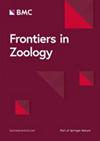利用模糊逻辑对基于专家知识和采样记录建立的物种分布模型进行比较
IF 2.6
2区 生物学
Q1 ZOOLOGY
引用次数: 0
摘要
专家们根据物种与环境之间关系的模糊逻辑假设,利用知识推断物种的分布。因此,专家知识适用于模糊逻辑建模,模糊逻辑建模赋予命题在0到1之间的连续真值。在物种分布建模中,模糊逻辑也可用于从许多记录中模拟有利于物种出现的条件的程度。因此,可以使用模糊逻辑运算来比较和组合基于专家知识和物种记录的模型。在这里,我们将模糊逻辑模型应用于乌拉圭两栖动物的分布,根据专家知识和观察到的记录推断出有利的位置,有利度是两种数据源的可通约单位。我们比较了专家认为普遍存在的受威胁物种和非受威胁物种的结果。我们计算了基于两个知识来源的模型的模糊交集,以获得对有利位置的统一预测。基于专家知识的模型涉及更多的变量,受抽样偏差的影响较小。基于专家的模型对这三种类型的物种有相同的过度预测率,而基于物种记录的模型对普遍存在的物种有较低的预测率。对于濒危物种,基于专家知识的模型与基于物种记录的相应模型的表现一样好,甚至更好,即使他们必须对用于基于物种记录建立模型的同一组记录进行区分和分类。对于受威胁的物种,专家模型预测的有利区域比根据记录预测的限制性更强。观察到的记录为未受威胁的非普遍物种和普遍物种生成了最佳拟合模型。模糊模型允许对专家知识和不完整分布记录的潜力进行客观比较,以推断适合不同物种的领土。主观的专家知识能够更好地解释受威胁物种的分布,而基于观测数据的通才物种模型更准确。这些结果对在保护规划中正确使用专家知识具有启示意义。本文章由计算机程序翻译,如有差异,请以英文原文为准。
Using fuzzy logic to compare species distribution models developed on the basis of expert knowledge and sampling records
Experts use knowledge to infer the distribution of species based on fuzzy logical assumptions about the relationship between species and the environment. Thus, expert knowledge is amenable to fuzzy logic modelling, which give to propositions a continuous truth value between 0 and 1. In species distribution modelling, fuzzy logic may also be used to model, from a number of records, the degree to which conditions are favourable to the occurrence of a species. Therefore, fuzzy logic operations can be used to compare and combine models based on expert knowledge and species records. Here, we applied fuzzy logic modelling to the distribution of amphibians in Uruguay as inferred from expert knowledge and from observed records to infer favourable locations, with favourability being the commensurable unit for both kinds of data sources. We compared the results for threatened species, species considered by experts to be ubiquitous, and non-threatened, non-ubiquitous species. We calculated the fuzzy intersection of models based on both knowledge sources to obtain a unified prediction of favourable locations. Models based on expert knowledge involved a larger number of variables and were less affected by sampling bias. Models based on experts had the same overprediction rate for the three types of species, whereas models based on species records had a lower prediction rate for ubiquitous species. Models based on expert knowledge performed equally as well or better than corresponding models based on species records for threatened species, even when they had to discriminate and classify the same set of records used to build the models based on species records. For threatened species, expert models predicted more restrictive favourable territories than those predicted based on records. Observed records generated the best-fitted models for non-threatened non-ubiquitous species, and ubiquitous species. Fuzzy modelling permitted the objective comparison of the potential of expert knowledge and incomplete distribution records to infer the territories favourable for different species. Distribution of threatened species was able to be better explained by subjective expert knowledge, while for generalist species models based on observed data were more accurate. These results have implications for the correct use of expert knowledge in conservation planning.
求助全文
通过发布文献求助,成功后即可免费获取论文全文。
去求助
来源期刊

Frontiers in Zoology
ZOOLOGY-
CiteScore
4.90
自引率
0.00%
发文量
29
审稿时长
>12 weeks
期刊介绍:
Frontiers in Zoology is an open access, peer-reviewed online journal publishing high quality research articles and reviews on all aspects of animal life.
As a biological discipline, zoology has one of the longest histories. Today it occasionally appears as though, due to the rapid expansion of life sciences, zoology has been replaced by more or less independent sub-disciplines amongst which exchange is often sparse. However, the recent advance of molecular methodology into "classical" fields of biology, and the development of theories that can explain phenomena on different levels of organisation, has led to a re-integration of zoological disciplines promoting a broader than usual approach to zoological questions. Zoology has re-emerged as an integrative discipline encompassing the most diverse aspects of animal life, from the level of the gene to the level of the ecosystem.
Frontiers in Zoology is the first open access journal focusing on zoology as a whole. It aims to represent and re-unite the various disciplines that look at animal life from different perspectives and at providing the basis for a comprehensive understanding of zoological phenomena on all levels of analysis. Frontiers in Zoology provides a unique opportunity to publish high quality research and reviews on zoological issues that will be internationally accessible to any reader at no cost.
The journal was initiated and is supported by the Deutsche Zoologische Gesellschaft, one of the largest national zoological societies with more than a century-long tradition in promoting high-level zoological research.
 求助内容:
求助内容: 应助结果提醒方式:
应助结果提醒方式:


